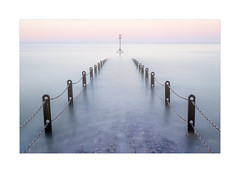Teagan Lehrmann ’13, reflects on making an academic path around food. Her senior thesis, “Sweet as Honey:The Beekeeper’s Fight against Corn Sugar and Objectivity,” examined the controversy around corn sugar adulteration in honey.
FLP: What did you study? How did you fit food into your courseload?
TL: My concentration was in the History of Science. This by far is the best concentration at Harvard… not that I’m biased or anything. Its so small, flexible, and individually driven- you can literally mold this concentration to fit any interest., especially if you decide to write a senior thesis. Finding a way to incorporate food into this concentration was surprisingly natural: I’ve taken classes that examine the production technologies of food, the issue with genetic modification in societies, and the development of no difficult task. I took a seminar on the history of food production technologies, have studied cookbooks as a historical document, and wrote my thesis on the history of food labeling laws as portrayed by a legislative fight between the United States honey and corn sugar industries.
FLP: When did you know that you wanted to study food?
TL: I’ve always enjoyed cooking, but my freshman seminar “Catching Fire” with Richard Wrangham opened my eyes to food as an academic: biological, sociological, historical, and anthropological world of study. Ever since that first bite I wanted more.
FLP: Were there any particular resources (academic, extracurricular) that helped support your interest?
TL: I studied abroad in Italy my Junior Fall, and enrolled in a semester long “Food Studies” program at the Umbra Institute in Perugia. (See more about this program: www.umbra.org/academics/food-studies/) If being involved in food is something that you are truly passionate about, it’s actually really beneficial to step outside the academic bubble of Harvard to be able to understand this field in its holistic context. Taking time off or abroad is something that scares a lot of Harvard students, but in my experience only enriched it ten times over.
FLP: Anything you think everyone (food scholar and non food scholar) should know about food?
TL: Food is complicated. And Exciting. And delicious. As a whole, our society should take more time to taste it, think about it, and act more responsibly concerning it.
FLP: What are you going to do now that you’re graduated?
TL: Working for a food truck! As far as long-time goals I’m not actually certain, but for the time being I’ll be working for the “bold fresh and fun” Bon Me food truck, helping them develop their catering business and opening up new brick and mortar establishments.









